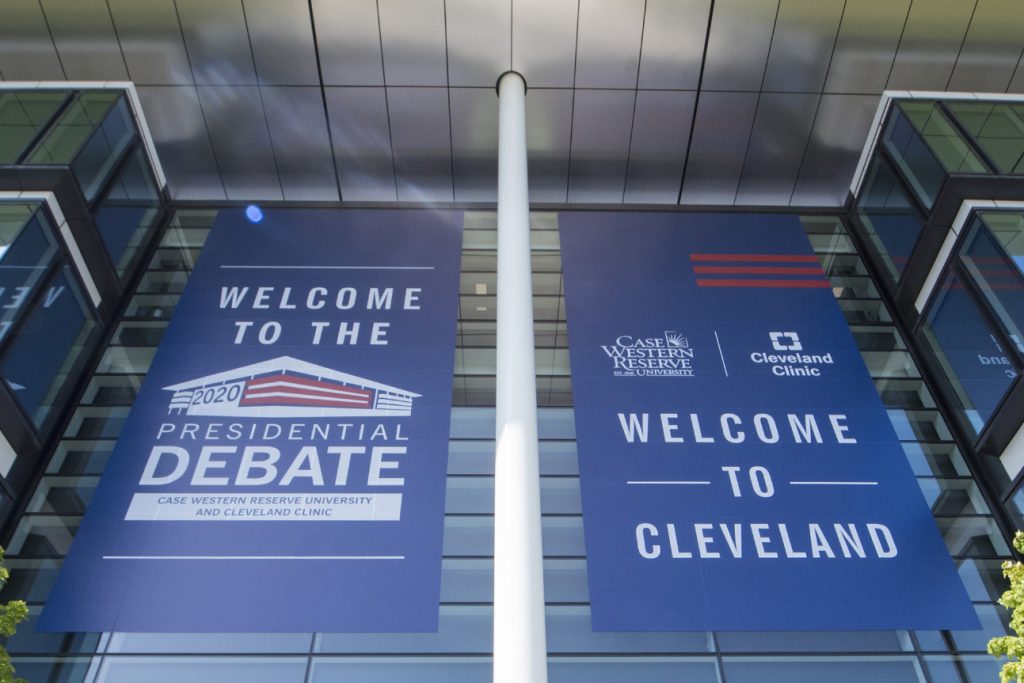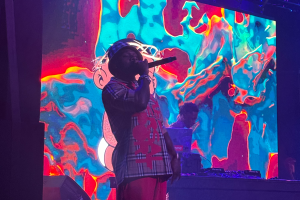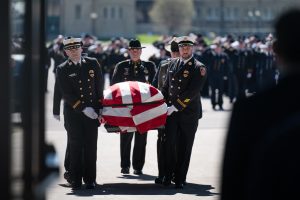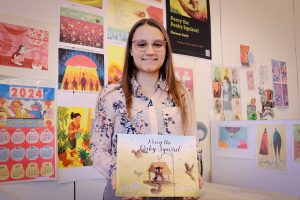SU professors host watch party for first presidential debate
Professors host watch party for first debate

Tuesday night marked the first presidential debate of the 2020 election cycle. Political Science Professors Mark Brockway and Christopher Faricy shared this occasion with political science students by hosting a watch party on Zoom.
As the debate covered topics ranging from climate change to white supremacy to the ongoing COVID-19 crisis, students had the opportunity to share their thoughts and ask questions in real-time.
The debate’s first few minutes were punctuated by an explanation of how the event would remain COVID-19 safe, even in front of a live audience. This introduction has typically been populated with formalities like moderator introductions, an explanation of the format, and acknowledgment of the hosts. This first aberration from the norm marked the beginning of a debate that would be one of a kind. The format gave each candidate two minutes to respond directly to Moderator Chris Wallace’s question and then opened the floor for rebuttals.
The candidates made their opening remarks in the first segment, which focused on President Trump’s recent nomination of Amy Coney Barrett to the U.S. Supreme Court. There was an immediate devolution into bickering, the candidates speaking, incomprehensibly, over each other. Students lamented in the zoom chatbox.
“This hurts.”
“This is painful.”
“This is like watching two children fight.”
By the end of the third segment, focused on the economy, Faricy shared his frustration with the candidates’ performances.
“This is the worst debate I have watched in 20 years,” Faricy said.
The fourth segment centered on race, the Black Lives Matter movement and the ongoing civil unrest in America as a response to police brutality. Trump conspicuously refused to denounce white supremacist organization Proud Boys. Instead, he instructed them to “stand back and stand by.”
"Will you urge your supporters to stay calm during this extended period? Not to engage in any civil unrest? And will you pledge tonight that you will not declare victory until the election has been independently certified?"#debates #Debate2020 pic.twitter.com/ZrXhVNGITO
— CSPAN (@cspan) September 30, 2020
As the candidates continued to discuss police brutality and racism in America, the students in the chat expressed frustration at their two presidential prospects. When Former Vice President Joe Biden outright opposed defunding the police, and emphatically urged the prosecution of violent protesters, some students reacted with frustration and dismay at his moderation on the topic.
One student asked, “Professor Brockway, is this demoralizing for you too?”
Brockway responded, “Nah. Can’t get demoralized.”
The debate marched on and Wallace presented the candidates with questions about climate and the integrity of the election. Both Trump and Biden made comments which elicited ire from the students, be it Biden’s outright denunciation of the Green New Deal, or Trump’s patently false assertion that mail-in ballots result in mass election fraud, and his refusal to commit to a peaceful transfer of power in the event he loses.
Some students’ comments expressed mere disdain for what a candidate said, cringing at out-of-touch policy proposals or transparently calculated comments. Some also expressed a deep sense of fear, a reckoning with the fact that this debate was hard to watch in the most literal sense. It was hard for some to hear, follow, and digest, regardless of which candidate will be president for the next four years.
Students stayed on the call for a question and answer session with the professors following the end of the debate. They had questions about the U.S. Supreme Court, foreign election interference, election fraud, and how this presidential debate compares to others. The consensus was clear.
Both professors encouraged their students to remain engaged in politics, to pay attention, to participate in whatever way they can, particularly when it comes to voting. They cautioned against a defeatist attitude.
“As soon as you throw up your hands and say they’re both equally as bad, I don’t care anymore, you have essentially given up all of your power and all of your say,” Brockway said.
Faricy echoed this sentiment, reminding students what is at stake on Nov. 3.
“There is policy on the ballot,” Faricy said. “Democracy is on the ballot. It is more than just the people you saw on stage tonight.”





